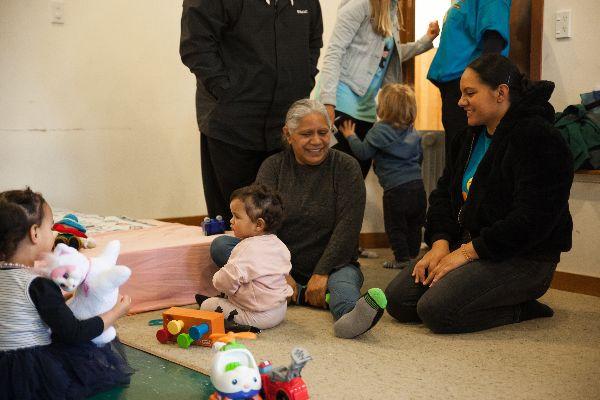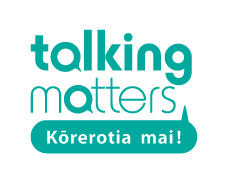by Hana Tuwhare, Community Activator for Talking Matters.
Whānau = Family
Whanaunga = Relative
Whanaungatanga = Relationship
Whakawhanaungatanga = The process of establishing relationships.

Whakawhanaungatanga can often be mistaken as icebreakers or rapport building – quickly introduce yourselves so we can get on with the business. However, for Māori our connections with people and places are foundational to everything we do and when we get things right for Māori, we get it right for everyone.
Whakawhanaungatanga allows space for people to express what’s in their heart’s, rather than what we want to hear. It reveals the aspirations and barriers for kaiako, whānau, and communities. The ongoing process of whakawhanaungatanga illuminates a clear path of how we can tailor our kaupapa so its relevant to the context of each organisation, iwi, ECE or whānau we work alongside.
While studying as a speech-language therapist (SLT), I understood whanaungatanga was important when working with Māori tamariki and their whānau. However, there were limited practical guidelines around how we do this as a profession. I took a deeper dive in my honours research project and interviewed SLTs (three Māori and one non-Maori) to explore their perspectives and understand how they nurtured whanaungatanga when working with Māori tamariki and their whānau.
The SLTs shared their holistic views of whānau. They spoke about being interested in the whole whānau rather than just the tamaiti. They valued the knowledge of the tamaiti, were genuinely interested in what whānau do, learned about other supports they may need and identified their aspirations for te reo Māori. Through this holistic lens, whānau were more likely to open-up about barriers they may be facing, allowing SLTs to provide more meaningful support rather than whānau nodding along and agreeing.
While the SLTs spoke about many other aspects influencing whanaungatanga, the most important part for them was finding a human point of connection. While it was natural and easy for them to make connections through whakapapa, people and places, they emphasized that connections can be made through anything. The important part was finding common ground - a shared interest in a rugby team, familiar places, or sharing about your own whānau.
Gaining a deeper understanding of who people are and how we can support them to reach their aspirations (rather than our own aspirations) goes beyond icebreakers and introductions. Gaining a deeper understanding of whanaungatanga led me to see it as a valid and legitimate way of working and helped me to understand that whanaungatanga is the business of working with people and communities.
Ten reasons why whanaungatanga is important:
- Our Māori tamariki do better when their identity, language and culture is recognised, affirmed and celebrated.
- If we get things right for Māori, we get things right for everyone.
- It’s worthwhile having the extra time
- The process of whakawhanaungatanga illuminates a clear path of how we can tailor our kaupapa to make it relevant to the context of each organisation, iwi, ECE or whānau we work alongside.
- Whanaungatanga can be mistaken for rapport building or icebreakers – quickly introduce yourselves so we can get to the business.
- Whanaungatanga IS the business. It’s the business of understanding who you are working with; what their aspirations and barriers are.
- Above anything else, what they want for themselves, their whānau, their communties and their world.
- It’s hard to explain, but when you’ve said a quick hello, told everyone your name and then ‘got down to business’ with your agenda, you are effectively working to YOUR agenda rather than the shared agenda.
- As soon as people have shared where they’re from, what they love about their mahi, about being caring, this opens a pathway towards shared goals and shared strategies for reaching them.
- You want people to be able to express what’s in their heart rather than what you want to hear; that requires trust and confidence which whanaungatanga supports.
